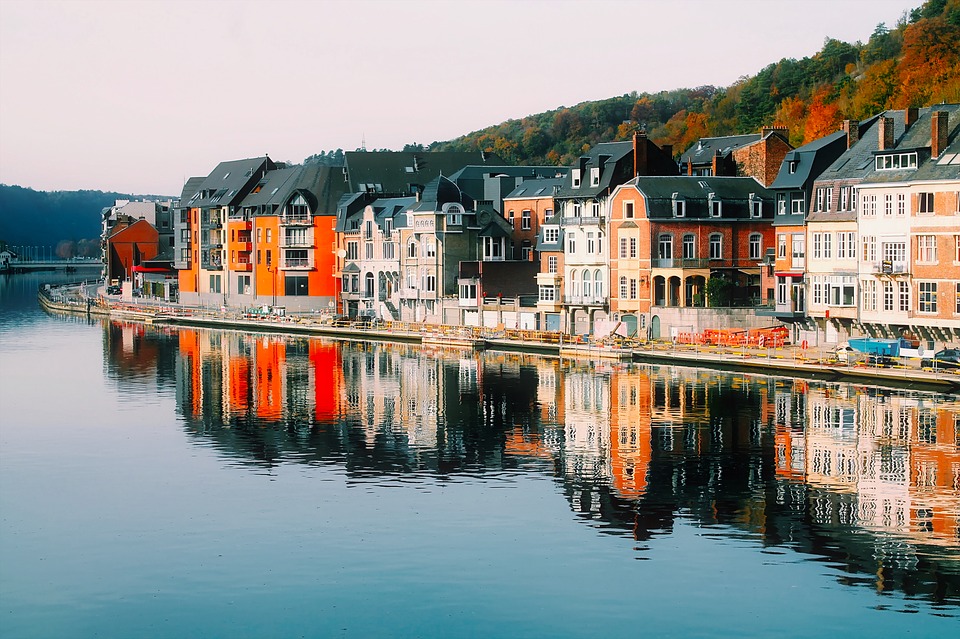King of the Belgians
What a strange kingdom that flat country, where they speak three languages ??and a dozen dialects, who knows fried potatoes (with beef fat), melt the chocolate and brewing beer as a person! Traveled from east to west in three hours, Belgium is a concentrate particularities identity, sweets sophisticated and eclectic, multiple skills and ultralocales traditions. Visitors will lose his Latin if the Belgians were not as friendly and caring. On the territory of pocket, the kitchen is abuzz – a map of gastronomic visit today brandish offices of the Flemish, Walloon and Brussels tourism. Bruges Namur, Ghent to Antwerp, the Belgian chefs innovate and experiment while reconnecting with their roots and soils. “Belgium is probably too humble to become the new Denmark, says Jean-Pierre Gabriel, Brussels culinary journalist who orchestrated in 2011, the festival Flemish Primitives. But there is something going on here. Ago dynamism, emulation fierce, particularly between the heads of 30-40 years, influenced by the “Nordic wave”, who want all their vegetables and their preferred suppliers. ” The land here is rich, black soil and amount of restaurants there now draw much of their inspiration.
So is it to L’Air du temps starred restaurant set fifteen years in the region of Namur, Wallonia, who moved in January, a few miles from his old address. A Liernu, the restaurant now has a great all-white farm placed in the middle of the field. When asked to Sang Hoon Degeimbre, unusual chef and self-taught, why this change, it simply says: “For this,” pointing to the landscape level with the kitchen, a large garden surrounded by (future) orchards. Here, the cook, who has long been harnessed to highly technical course, came to take root in the ground, with his team. Benedict Blairvacq his accomplice gardener rejoices. Former banker, he converted to the cultivation of vegetables after being shocked by a meal at Degeimbre decade ago. It now has the rare privilege of tasting the daily chef’s creations. “Every morning we go to the garden together, tells Blairvacq. We enjoy plants and we give a lot of freedoms, such as picking greens or very mature, as needed… But, ultimately this is the garden that decides the plate. ” The plate precisely is precise and elegant, subtle declining stocks and extractions fragrant, combining land, sea and meat, all linked by weeds. “Contemporary Terroir” is the credo of Degeimbre: “recognition of the past, redesigned to present.”
CULINARY ENTHUSIASM
A pioneer in its report to the green Degeimbre is far from alone in taking this path: near Bruges, the three-star duo Hertog Jan (the chief Gert Mangeleer and sommelier Joachim Boudens), which has its own garden, announced the move in a big farm where guests can dine eyes planted in crops. In Brussels, Christophe Hardiquest, Bon-bon, practical natural cooking, woven wild plants gathered in the forest … As for Nicolas Darnauguilhem, Savoy chef who moved to Brussels in 2010 to open Neptune, a bistro de sewing, he now dreams of creating a farm restaurant in the heart of the city. “Brussels has a past rooted in urban agriculture, he says. Ago a wasteland of madness and we can do a lot of things here!”
They are several young French chefs have chosen to settle in Belgium – less for tax incentives for the culinary enthusiasm that drives the country. Examples include Julien Burlat, Dome, Antwerp, or Alsatian Nicolas Scheidt, formerly the Office (Paris-9e), which is located in the Belgian capital. Picking up two years ago, a brewery dedicated to mushrooms (the Café des Spores), which he left in his juice, he also chose to exercise their creativity in front, La Buvette, a former horse butcher Art Nouveau , became the hottest time of the Brussels bistro. Light Meals and accessible anti-crisis, which does not hesitate to associate with the bottom pieces and proletarians vegetables, leaves and juice, sour and bitter.
Impossible to provide here a comprehensive picture of Belgian gastronomy, which has nearly 120 stars and still more talented chefs. What we can say is that if Wallonia was long the stronghold of the Belgian culinary identity, today Flanders is boiling. For this, the north of the country owes much to Kobe Desramaults. In the levers of wulf, near the French border, thirty chief was one of the first, in 2005, to strive Ultralocal and enroll in the northern movement. He goes his way, in the old farm inherited from his parents that he has dusted in order to create a restaurant and a few simple rooms. In the hearth of the dining room, celery root in a salt crust roasted slowly. Outside, a young baker turns in front of a large bread oven planted in the garden. The kitchen is made of monochromatic Desramaults keys in accordance with the seasons. A winter menu and consist of brown, beige and earth shades, tastes smoked or burned, raw or fermented, subtle and authentic. “I work with what I can and what I says the chef. I want to make interesting small dishes that highlight the nature of the products.” This is the taxi driver on the way back, the best summarize: “Kobe, what it does, it is the kitchen of the future.”




